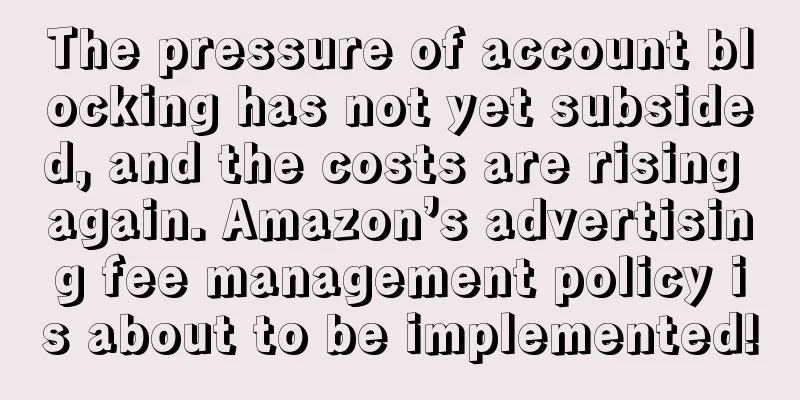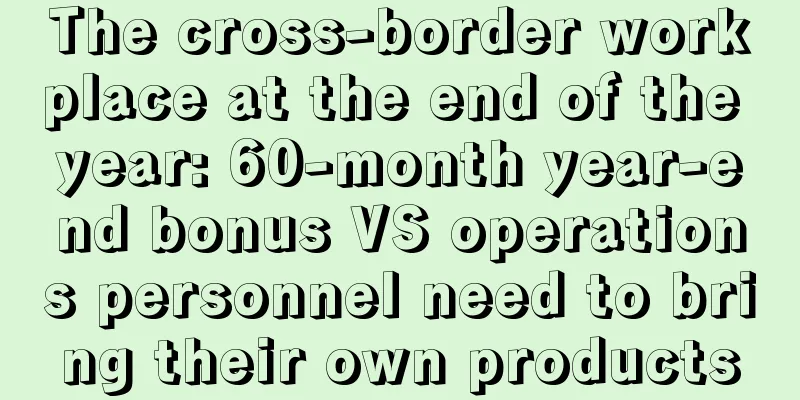Recently, gossip about a male star in the entertainment industry has been making headlines. After a domestic beauty brand announced the termination of its cooperation with the brand, the number of people in its live broadcast room, which originally had only a few thousand, skyrocketed to 3 million, with sales of a single live broadcast exceeding 1.32 million yuan, making many e-commerce people envious.
Outside the entertainment circle, gossips are also flying all over the cross-border circle, with big and small sellers being blocked, platform policy changes and other turmoil coming one after another. Sellers are being scammed one after another, and the reasons for blocking accounts are becoming increasingly bizarre. The account blocking wave that has shaken the entire cross-border circle has not eased yet. With big sellers failing one after another, the situation of small sellers is also turbulent. 1. Cross-site association According to a seller’s feedback, his European store triggered a KYC audit some time ago, but the account was blocked by Amazon the next day after it successfully passed, on the grounds of suspected cross-site association. It is reported that the account was registered last year and opened 11 sites in total, but now all sites have been closed due to association. According to the performance notification, the reason his account triggered an associated penalty was that the US site was suspected of fraud. What made the seller angry was that the site had already been transferred to other sellers, but his entire account was implicated due to the illegal operations of others. ▲ The picture comes from Zhiwubuyan Coincidentally, a seller also said that his store product links were implicated because of brand association. The store had a main brand A, but a certain product used brand B, which resulted in all links of brand B, including those of other stores, being removed from the shelves. Even links to new products that had not yet been put on the shelves were mistakenly identified as manipulating reviews. ▲ The picture comes from Zhiwubuyan Fortunately, the company had previously untied the brands, so the store was not implicated. The seller admitted that some time ago, there was a situation where the entire store was shut down due to brand linkage, and one of the big brands was directly paralyzed. So far, four brands have been affected. ▲ The picture comes from Zhiwubuyan Not only that, there are also sellers who revealed that they had only registered for a few months and had never conducted any illegal operations such as false orders or reviews. However, they suddenly received a policy warning and were blocked recently , indicating that their store was suspected of manipulating ratings, rankings, traffic, etc. If the violation is not handled, the record will be retained for 180 days. ▲ The picture comes from Zhiwubuyan It is not difficult to see from the experiences of the above sellers that Amazon’s recent measures to block all sellers have become increasingly stringent. Compliance operations and timely self-inspection are the only options available to sellers at the moment. In addition to strengthening the crackdown on illegal operations, Amazon has also taken a number of new actions in the formulation of platform policies. Attention European sellers! Amazon updates advertising fee management policy It is learned that Amazon recently updated its advertising management policy . New advertising management fees may be added to the bill of the seller's Amazon advertising account. That is, when placing or purchasing advertisements in certain countries, the advertising management fees may be included in the bill.
The countries that are currently known to charge DST fees include: France, Italy, Spain, the United Kingdom, Austria and Turkey. The DST rates are as follows: Specifically, if the seller is on the US site, when the ad receives a click worth $1.00 and the customer is from a country with a DST rate of 2%, the seller will pay an advertising management fee of $0.02 for the click. If your business address is in one of these countries, you will see an ad management fee calculated based on your total bill amount in addition to the ad management fee for ads placed in countries or regions that implement DST. For example, a seller in the UK who receives an ad click from a customer in Italy will pay the ad management fee for both the UK and Italy. This means that once this policy is put into practice, sellers’ operating costs will increase further, which will make the already greatly compressed profit margins even worse. In this regard, sellers have complained bitterly: "After increasing the delivery fee, they added the collection tax, and then the digital service tax. Now there's this thing in the ads? I think this means they're just trying to take advantage of the sellers. It doesn't matter whether you make money or not. They're just going to squeeze you in all aspects." "Amazon is further exploiting merchants and continuously raising costs, making more new merchants become leeks. The market is further cleaned up, and only those who can stay are those with real strength." "Amazon has picked up its sickle again, cutting the leeks and freezing the barley money, killing batches of Chinese sellers!" A seller on the French site reported that his FBA delivery fee also needs to be charged a 3% DST rate, and the latest notice received indicated that it will be implemented on September 15. The commission itself has an electronic tax, and recently the European government has begun to levy various taxes in various ways. In addition, there is no price increase after the European withholding tax. It can be said that the profit space is constantly being compressed amid "internal and external troubles." What do you think about Amazon's recent actions? Feel free to leave a comment in the comment section~
|










